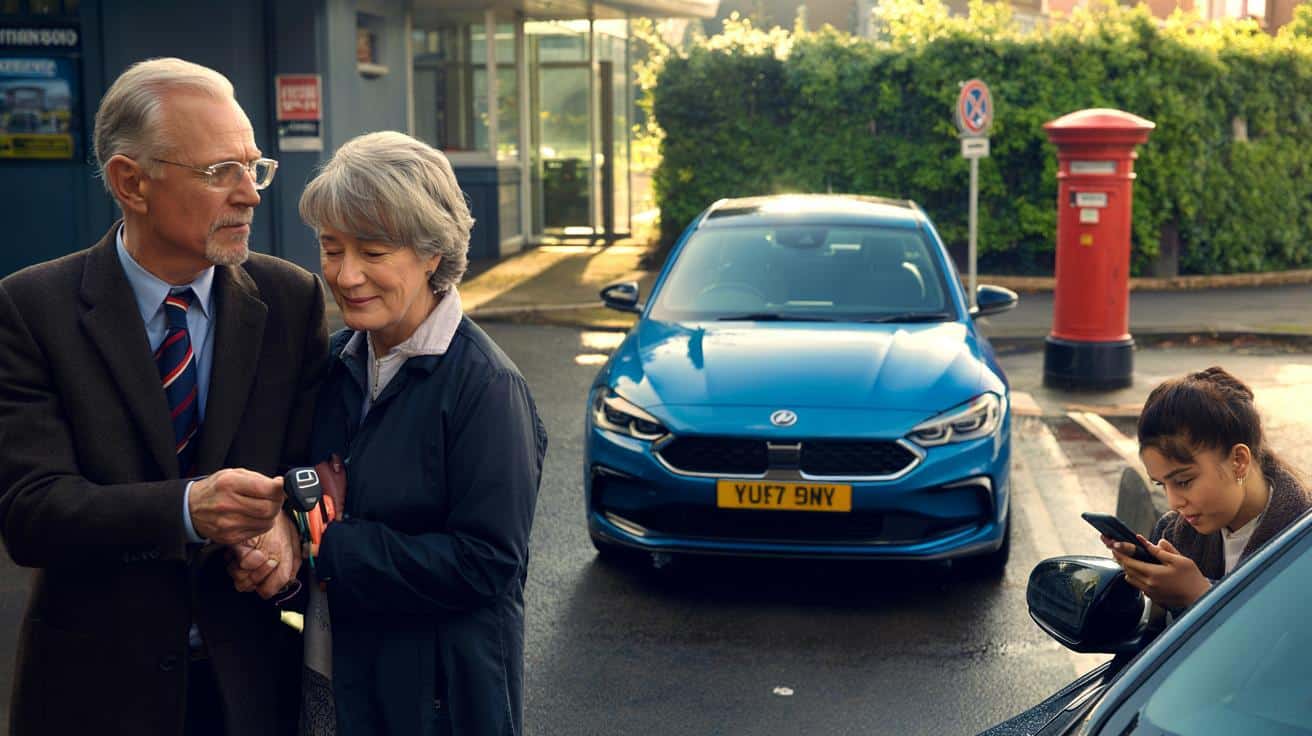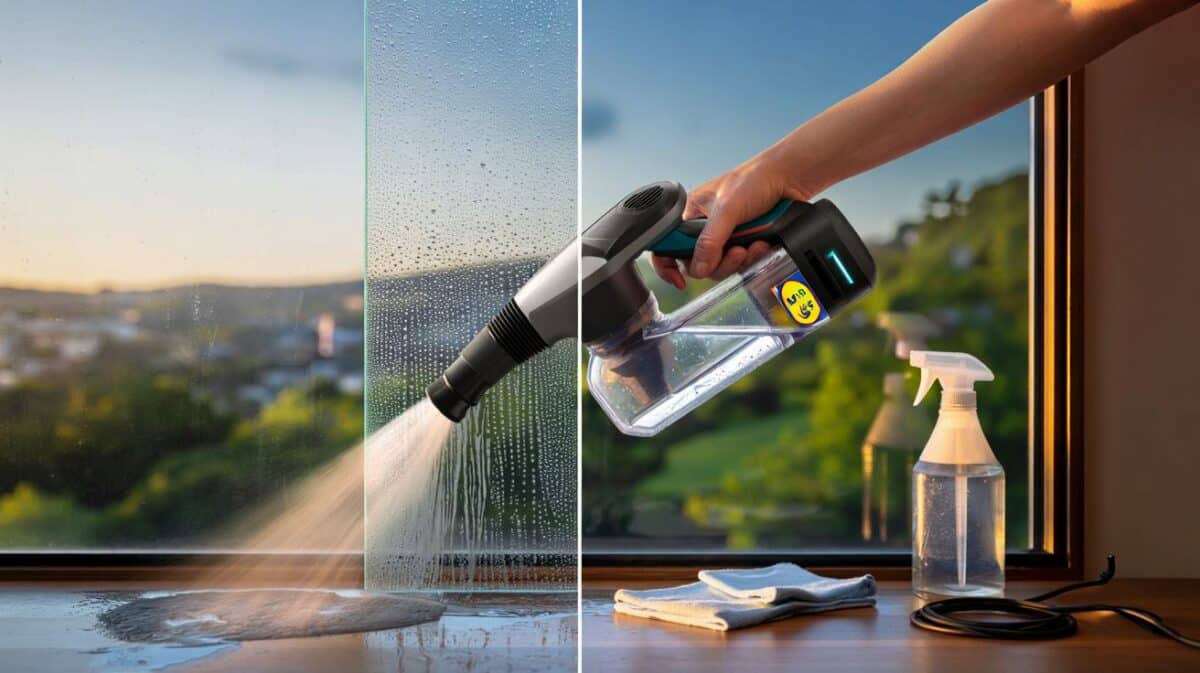That fear keeps bubbling up at kitchen tables and GP surgeries. Here’s the truth tucked away in the small print of the traffic regulations: the limit isn’t a birthday. It never was. And 2025 hasn’t changed that. The real line is drawn somewhere far more personal — your fitness, your eyesight, your judgment.
I watched an older couple at a Post Office counter in Kent, the husband clutching a renewal form with the stubborn pinch of someone not ready to let go. He was 73, he told me, and the clerk asked for the usual details with the casual speed of someone who’s done this a thousand times. Behind him, a teenager rehearsed theory-test questions on his phone, mouthing road signs like lyrics. The two worlds barely glanced at each other. Later, in the car park, the man’s wife squeezed his hand and said, “You’re fine, love. You still see better than me.” He laughed, then he didn’t. Or is he?
The real limit: not an age, a standard
There is no legal maximum age to drive in the UK. That single sentence sweeps away the pub myth about 70 or 80 being a cliff edge. At 70 you renew your driving licence, and then every three years. You confirm your health and eyesight meet the rules. That’s it. The bar itself doesn’t change with your age, only how often you prove you can still clear it.
Think of the eyesight rule everyone forgets until it matters: you must read a number plate at 20 metres in good daylight. Plenty of 45-year-olds stumble on that. Plenty of 85-year-olds ace it. The Department for Transport’s own data shows older drivers, mile for mile, don’t crash as often as young ones; they’re just more fragile when things go wrong. A quiet truth hides there in the statistics.
The licensing logic is simple: risk lives in conditions, not candles on a cake. That’s why the DVLA lists “notifiable” medical issues — from epilepsy to some vision problems, from insulin-treated diabetes to recent strokes — and asks drivers to declare them. Doctors advise, DVLA decides, and sometimes temporary suspensions protect everyone. Age, in itself, is not the culprit. The rule is blunt but fair: drive only when you’re fit, and stop when you’re not.
Keeping the keys: practical steps that work
Start with a routine you can keep. Renew online via GOV.UK when you hit 70; it’s free and quick. Mark the three-year cycle in your calendar so it never sneaks up on you. Build a monthly ritual: read a number plate at 20 metres, check your glasses prescription is current, and do a short confidence drive at a quiet time. Small consistency beats big drama.
Watch the sneaky stuff. Medications change your reaction time more than pride will admit, especially new prescriptions or doubled doses. Fatigue arrives faster on wet nights and busy roundabouts, so pick daylight routes and give yourself extra time. Tell your insurer about any health change; the wrong surprise can void cover. Let’s be honest: nobody really does that every day.
Invest in feedback, not just new tech. A one-hour assessment with IAM RoadSmart or RoSPA can be a friendly tune-up, not a test to “catch you out”. It’s a space to relearn gaps that have crept in, like speed awareness on new 20 mph zones or reading modern LED brake lights in rain.
“Driving ability is about function, not birthdays. I’ve signed off brilliant 90-year-olds and advised rest to nervous 55-year-olds. The road is fair like that.”
- Quick check before you go: can you read a plate at 20m, feel rested, and know the route?
- Keep lenses clean, windscreen crystal clear, wipers fresh, and headlights aligned.
- Use car tech as backup: alerts for lane drift, speed limit display, emergency braking.
- Plan daylight drives, avoid rush hours, and add five minutes for every tricky junction.
- If something felt “off” last time, practise that one thing in an empty car park first.
The 2025 picture: clarity, not cut-off
Here’s what matters this year: the UK still sets no upper age limit for drivers, and the core standard hasn’t shifted. Renew at 70, then every three years, and keep your health declarations honest. Eyesight remains the everyday gateway — read that 20-metre plate, keep glasses handy, and book regular checks. Some European countries tinker with older-driver exams; Britain leans on medical fitness and self-declaration, backed by DVLA reviews when flags pop up. We’ve all had that moment when a familiar road suddenly feels new again, and the car seems to ask, “Are you with me?” That question is the real test. If the answer is yes — because you’ve done the small checks and listened to your body — the keys stay yours. **Age is a story we tell; driving is a skill we maintain.** Talk to your GP early if anything worries you. Share a drive with a trusted friend and ask for honest notes. The line isn’t a birthday. It’s a standard we can meet, together.
| Point clé | Détail | Intérêt pour le lecteur |
|---|---|---|
| No maximum age | UK law sets no upper age limit; renew at 70 and every three years | Clears the myth about “handing in the keys at 70 or 80” |
| Eyesight first | Read a number plate at 20m; keep prescriptions current and lenses clean | Simple self-check you can do today for safer trips |
| Fitness over birthdays | Declare notifiable conditions; seek assessments when unsure | Practical route to stay legal and confident behind the wheel |
FAQ :
- Is there a maximum age to drive in the UK?No. There’s no upper age limit in law. You renew your licence at 70 and then every three years, confirming you still meet the medical and vision standards.
- What eyesight standard do I need?You must read a number plate at 20 metres in good daylight and meet the minimum field-of-vision standard. If you use glasses or contacts, wear them whenever you drive.
- Which medical conditions must I report to DVLA?Conditions that affect safe driving, such as epilepsy, certain heart issues, some vision problems, insulin-treated diabetes, sleep apnoea, strokes, and some neurological disorders. Check GOV.UK for the full list.
- Do insurers need to know about health changes?Yes. Tell your insurer about any condition relevant to driving and anything DVLA has been told. **Silence can invalidate a policy when you need it most.**
- How can I stay confident without overtesting myself?Use short, regular drives in daylight; book an hour with IAM RoadSmart or RoSPA for friendly feedback; keep your car’s safety tech on. One habit a week beats one panic every six months.








